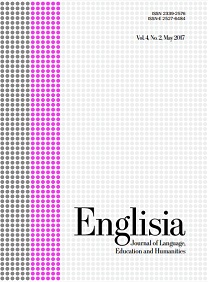Understanding students’ activities in Wi-Fi coffee shops in Aceh: A survey and narrative interview report
DOI:
https://doi.org/10.22373/ej.v10i1.15167Keywords:
Wi-Fi coffee shops, College students, Internet access, Aceh, Internet for educationAbstract
This study attempts to investigate and comprehend more in-depth information about students' daily lives in the Wi-Fi coffee shops, specifically in Aceh, a province of Indonesia. The study explores how the wireless Internet in coffee shops relates to college students' activities. The surveys of 619 students were conducted as a preliminary report. An in-depth phenomenological interview was employed to collect data from three university students who regularly spent many waking hours in coffee shops. Findings from the preliminary survey revealed that more male students visited coffee shops than women, with an average time of more than three hours daily. Accessing information through the Internet was not the primary purpose of visiting the coffee shops by most students instead of gaming, meeting up with friends for a chat, and enjoying the coffee. Qualitative interviews reported that students often visited coffee shops for various purposes, including completing homework, meetings with friends, and finding freelance online market jobs. Wi-Fi coffee shops are essential for those who do not have Internet access at home, particularly young people and recent transplants with low incomes but high educational capital. Although the Internet in coffee shops can have both negative and positive effects on students, if users or students can access these facilities rightly, they will acquire many benefits to support their education and future career. However, if misused, it may negatively affect their lives. Suppose the Internet in the coffee shop is used properly for educational purposes. In that case, it will push for greener and healthier information practices for students who may favor low-tech environments or lack personal infrastructure or resources.
Downloads
Downloads
Published
Issue
Section
License
Proposed Policy for Journals That Offer Open Access
Authors who publish with Englisia journal agree to the following terms:
- Authors retain copyright and grant the journal right of first publication with the work simultaneously licensed under a Creative Commons Attribution License that allows others to share the work with an acknowledgement of the work's authorship and initial publication in this journal.
- Authors are able to enter into separate, additional contractual arrangements for the non-exclusive distribution of the journal's published version of the work (e.g., post it to an institutional repository or publish it in a book), with an acknowledgement of its initial publication in this journal.
- Authors are permitted and encouraged to post their work online (e.g., in institutional repositories or on their website) prior to and during the submission process, as it can lead to productive exchanges, as well as earlier and greater citation of published work (See The Effect of Open Access).









